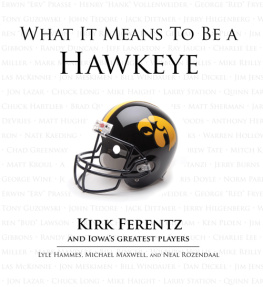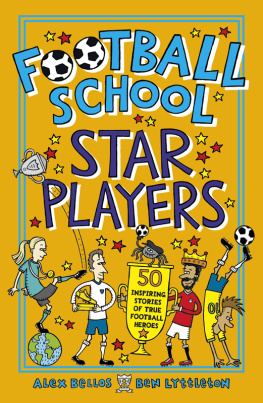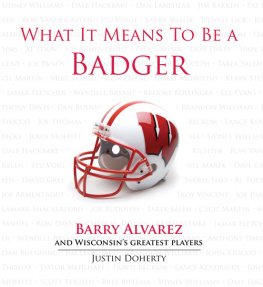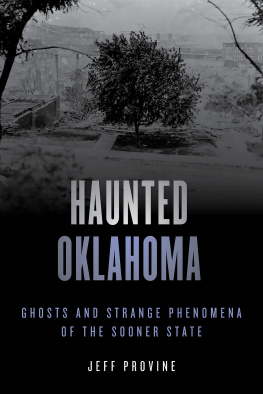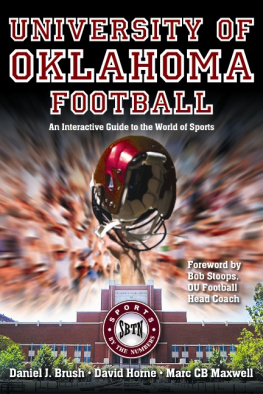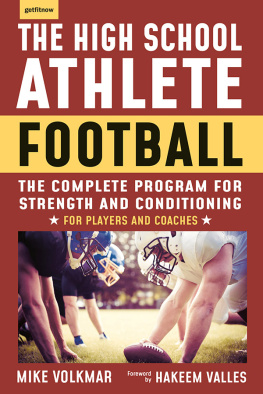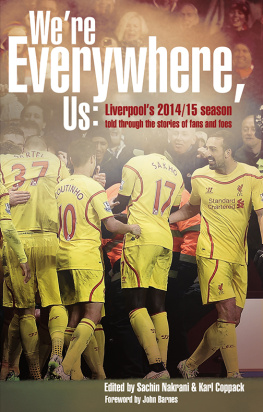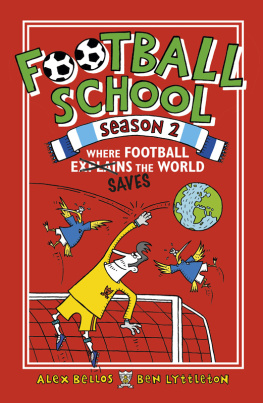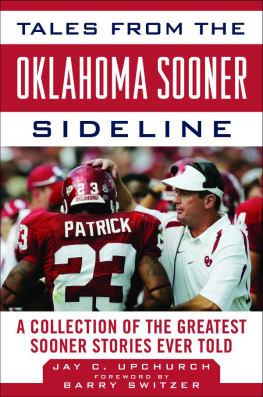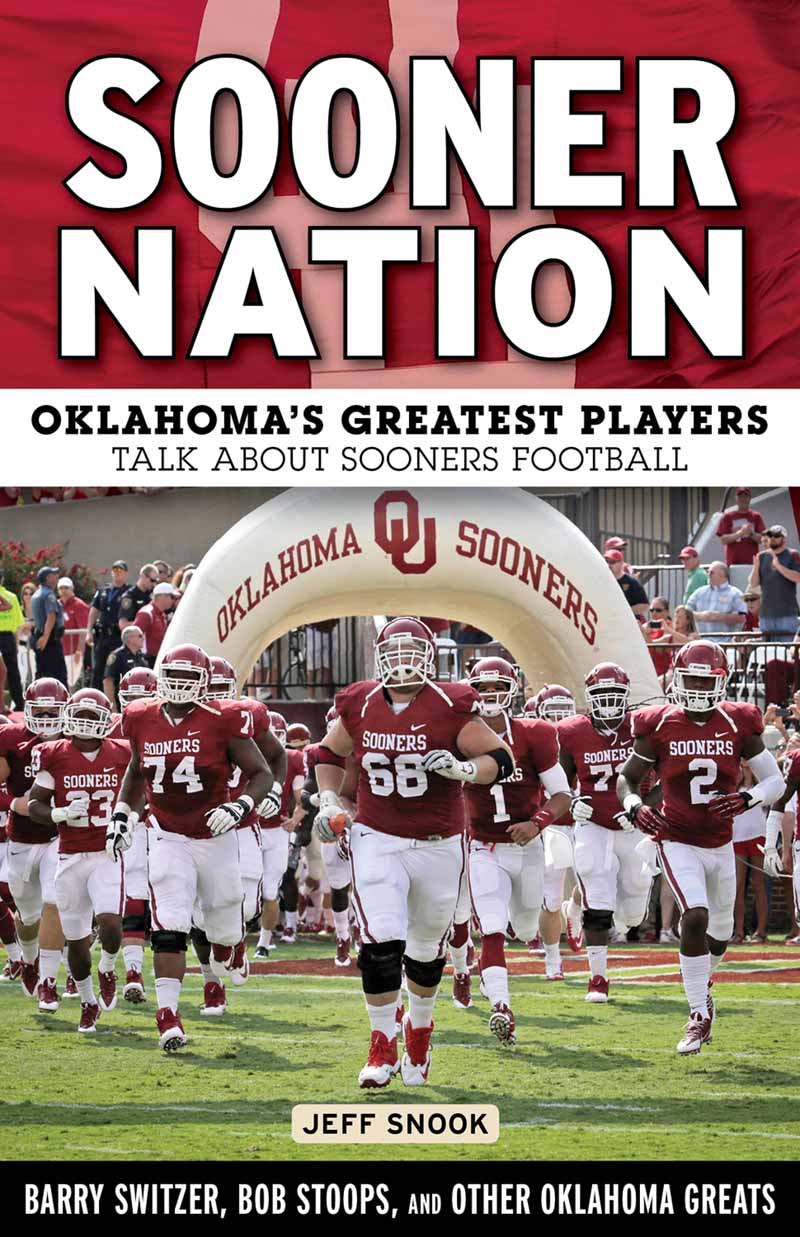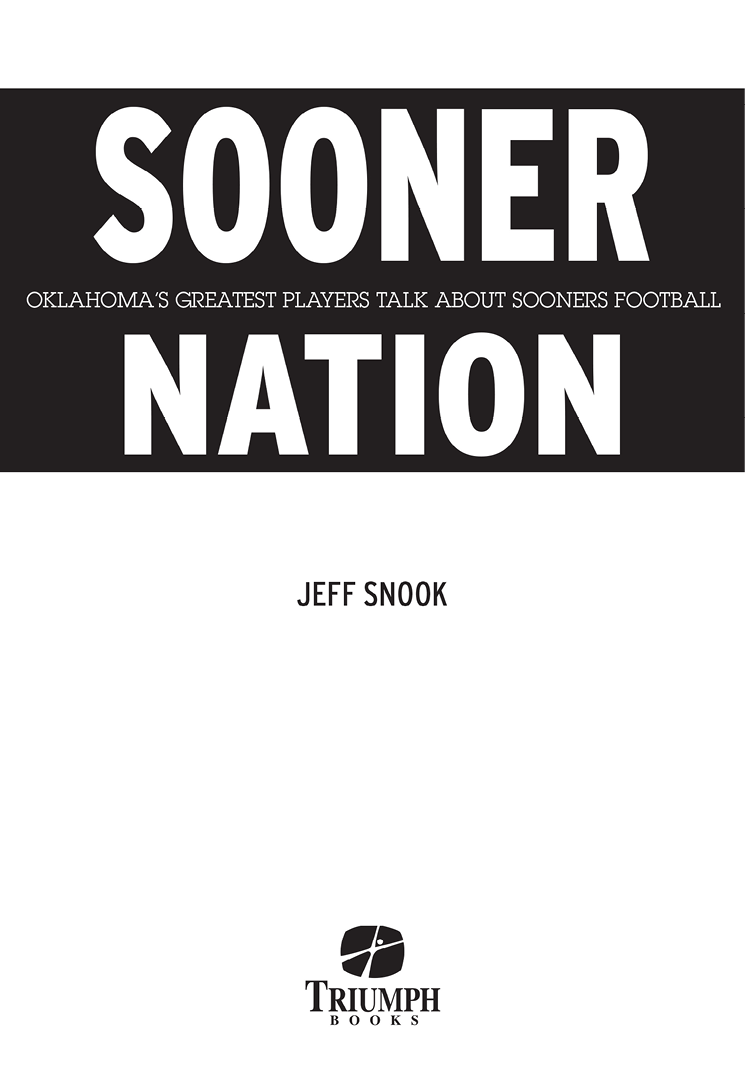
Contents
Paul Buddy Burris Jack Mitchell Darrell Royal Wade Walker
Eddie Crowder J.D. Roberts Prentice Gautt Jerry Thompson
Wayne Lee Jim Grisham Carl McAdams Granville Liggins Steve Zabel Steve Owens
Jack Mildren Tom Brahaney Joe Washington Tinker Owens Lee Roy Selmon Jimbo Elrod Thomas Lott Uwe von Schamann Billy Sims
J.C. Watts Terry Crouch Jackie Shipp Rick Bryan Spencer Tillman Brian Bosworth Mark Hutson Anthony Phillips
Rocky Calmus Josh Heupel Roy Williams Jason White
Foreword by Barry Switzer
My story begins in South Arkansas, in a little town of about 3,000 people called Crossett.
I was interested in athletics at a very young age, and it was in the late forties when I began my football career in junior high school. I loved the game from the beginning. On Saturdays, I would go outside to sit in Daddys car, roll down the windows and open the doors because it was so hot, and just sit there and listen to college football games.
I became an Oklahoma football fan for one reasonthe Sooners always played afternoon ballgames, and I could listen to them. At night, I could get the Razorback Network and listen to Arkansas.
And sometimes, we listened to the Grand Ole Opry.
What some people dont know is that Oklahoma played afternoon games only because there were no lights at Owen Field, and Bud Wilkinson wanted their games to make all the newspapers deadlines on the East Coast. That was a tremendous advantage in those days, and I thought it was a pretty good strategy to gain exposure.
When I was a kid, I had this map of the USA pinned to my bedroom wall, but this was a college football map, including all of the major football schools and featuring their mascots. For example, there was a Trojan out in L.A., a big Leprechaun in the northern part of Indiana, and an Indian logo right over Norman, Oklahoma. That was long before political correctness forced Oklahoma to abandon the Indian mascot.
So while I was growing up, the Oklahoma Sooners were on my mind at that time, through listening to their games on the radio and staring at that map.
My last season of high school football was 1954, and I was considering attending either LSU or Arkansas. Crossett was closer to Baton Rouge than it was to Fayetteville, but I had a really tough decision. Charlie McClendon, the head coach at LSU, was a great coach and he later became a very good friend of mine. If I had gone there, I would have played on the 1958 national title team with Billy Cannon, but I decided to go to Arkansas with my high school buddies.
As I played at Arkansas, that Oklahoma influence still followed me.
Being in Fayetteville, we were somewhat isolated from the world. TV was in its infancy, but we did get the Tulsa network that carried the Oklahoma games on replay and The Bud Wilkinson Show . The only newspaper I read was the Tulsa World . So I was immersed in Oklahoma politics and Oklahoma football tradition because of all of those things.
OU was in the middle of that 47-game winning streak during my freshman, sophomore, and junior years.
This is one thing I will never forget: we had played SMU and Don Meredith in the Cotton Bowl one Saturday and as we flew home to Arkansas, I was reading Sports Illustrated . I remember the exact date: November 16, 1957. I was sitting there in that DC-3, twin-engine plane [it took two of them to fly the football teams around then], reading a story titled, Why Oklahoma Is Invincible.
As I was in the middle of that article, the pilot came over the audio system and said, I have a college football score that may interest you: Notre Dame 7, Oklahoma 0.
And that started the Sports Illustrated jinx.
It was the end of the greatest streak in college football history.
* * *
Bud Wilkinson never remembered this story of meeting him, but I do vividly.
Six years later, in 1963, Bud resigned to run for the U.S. Senate. In January 1965, I was at the national coaches convention at the Hilton Hotel in Chicago. I was in my late twenties and was the assistant offensive line coach at Arkansas, and Merv Johnson was the offensive line coach at the time. Jim MacKenzie was our defensive coordinator. We had just beaten Nebraska in the Cotton Bowl to win the national championship.
I had grown up with Larry Lacewell, and his mommy had dated coach Bear Bryant years earlier. In fact, I used to kid him that his profile looked just like the Bear! Anyway, I called Larry, who had just won the junior-college national championship at Kilgore Junior College, and asked, Are you coming to the coaching clinic in Chicago?
He said, No, our budget doesnt allow that.
You hop your butt on a bus and come up here, I told him. I will pay for your meals and we can put you on a roll-away in my room.
So he did. At night, Larry and I would sit at the hotel bar and point to all the coaching legends who walked by. After a while, we had a few drinks and he said, Lets go see coach Bryant.
We went to the front desk, and they told us he was in suite so-and-so. We got on the elevator, got up to his floor, and started that long walk down the hall to his suite. There were big double doors at the entrance, but we could still hear all of this laughter behind those doors.
As we were about to knock on the door, Larry froze.
Just as I said, Larry, if you dont knock on that door Duffy Daugherty came through the door with two ice buckets under his arm.
Duffy looked at us and said, Hey guys, come on in! But go fill up these ice buckets first.
After Larry and I filled up the ice buckets, we walked back into the suite and set them up on the bar. Duffy then walked up said, Hey, why dont you mix a drink for Coach over there.
Over there with the Bear were Woody Hayes, Ara Parseghian, Bob Devaney, and Bud. So Larry and I started mixing drinks for those guys, the greatest coaches in the history of college football.
Coach Bryant noticed Larry, but he didnt know who the hell I was. I figured they must have thought the hotel had sent us up to mix drinks for them. As it ended up, we spent the entire evening with them, listening to their stories and mixing their drinks. It was one of the greatest evenings of my lifeand it was the first time I met Bud Wilkinson.
I never told Bud that story when I got to know him later, but I wish I had.
After Bud had retired from coaching, he was only 47. I was shocked when he lost the Senate race because he was so popular, but I think he would have won had he changed political parties and been a Democrat. I think if he had done that, he could have become president of the United States. And I really believe that is what his aspiration was.
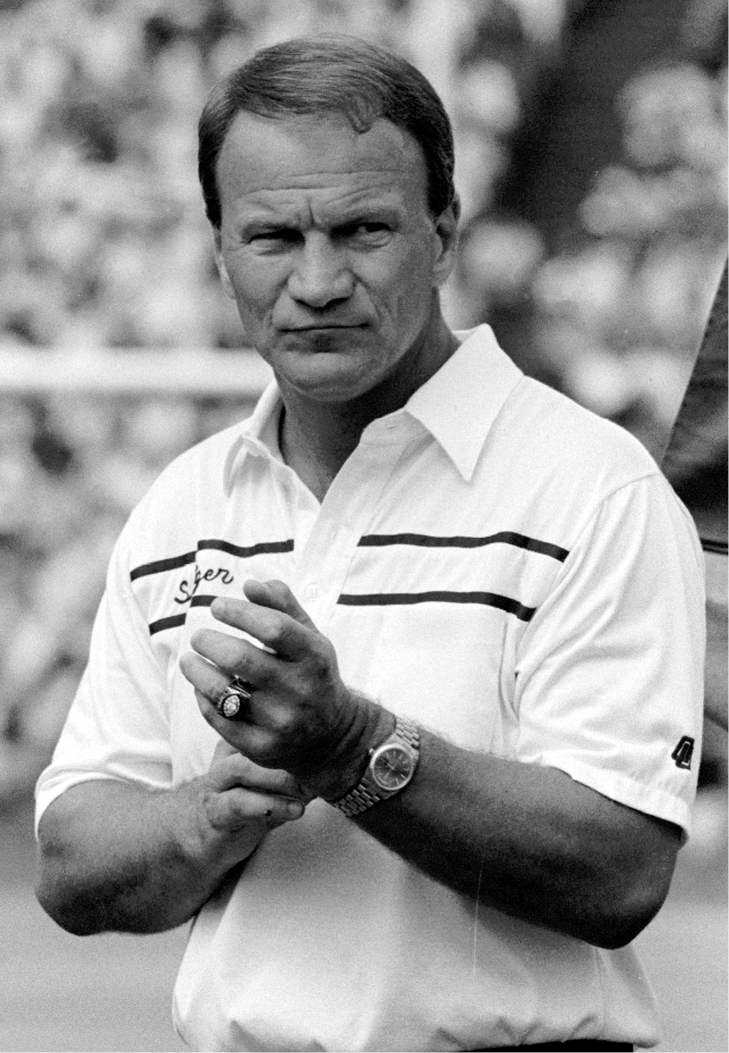
Head coach Barry Switzer ponders his next move during Oklahomas game against Texas in Dallas on October 12, 1985. Photo courtesy of AP/Wide World Photos.
As soon as he was gone, Oklahoma fell on hard times. Gomer Jones got fired after only two years, and Jim MacKenzie, who not only was a colleague on Frank Broyles staff with me but a great, great friend, applied for the job. I remember that they also interviewed Doug Dickey and Vince Dooley.
That season, 1965, Arkansas had gone undefeated again, and we were in San Antonio preparing for the Cotton Bowl. We were sitting in Franks suite between our two-a-day practices one day and the phone rang.


